Calumet
Building
- Table of Contents
EXTERIOR - The Calumet Building / Bacchus Restaurant
(CAL you met)
46-58 West
Chippewa St., Buffalo NY
|
ERECTED: |
1906 |
|
ARCHITECTS: |
Esenwein & Johnson |
|
STYLE: |
Art Nouveau. This is the most exuberant, flamboyant example of glazed terra cotta in the city. |
|
1998 OWNER: |
Mark
Goldman,
Buffalo historian. Goldman, a local hero to some, who was
instrumental
in the revitalization of the Chippewa Street area. "In Mark Goldman's imagination twenty four years ago was a plan to transform Chippewa Street in downtown Buffalo from what many people described as a red light district into an entertainment center of the city. Goldman purchased the Calumet Building in 1988 and the rest is Buffalo history. " - Holly Metz Doyle, The Calumet: Making Old Elements Appear New Again Buffalo Spree Magazine, November 1, 2012 |
|
A BIT OF HISTORY: |
KKK chapter here during Prohibition in the Calumet Building. See text below. |
On this page, below:
| Facade 1999 color photos  Historic photo  One outstanding feature of this building is the glazed polychromatic terra cotta  The facade on Chippewa St. is of cream and burnt sienna glazed tterra cotta ... Note the two vertical piers that do not extend to the foundation.   Calumet is French for "reed"  Pendant bellflowers and garland    Exceptional spandrel panels  Entrance  The calumet, a ceremonial peace pipe, was the hallmark of the Calumet Club which occupied part of the building  The bottom of one of the two vertical piers that do not extend to the foundation. The hole is probably a drain spout. |
MURALS - West elevation on Franklin St. 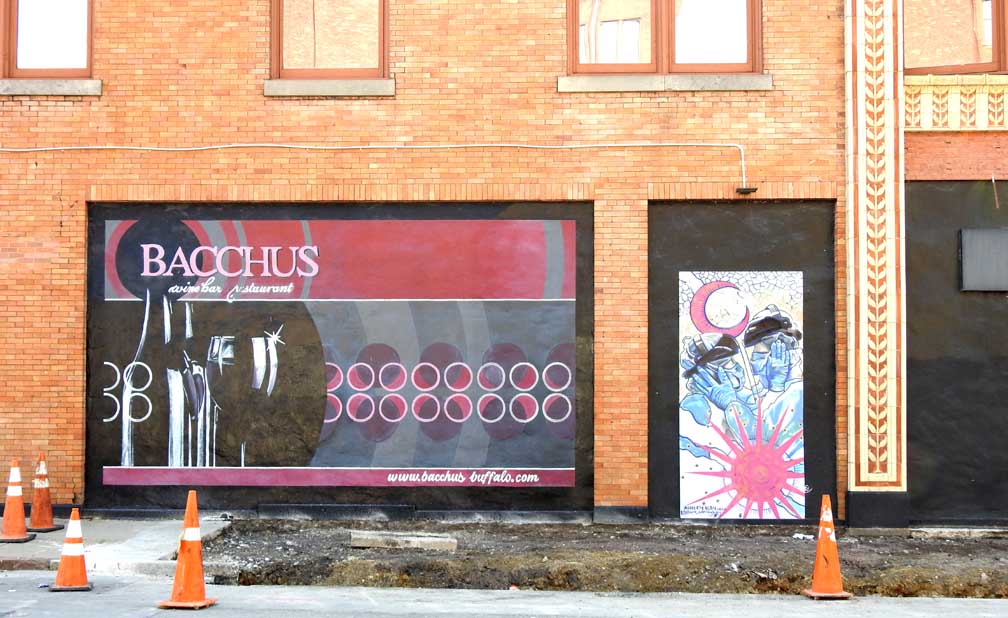 June 7, 2021 photo  2014(?) photo ... Commercial mural - unsigned  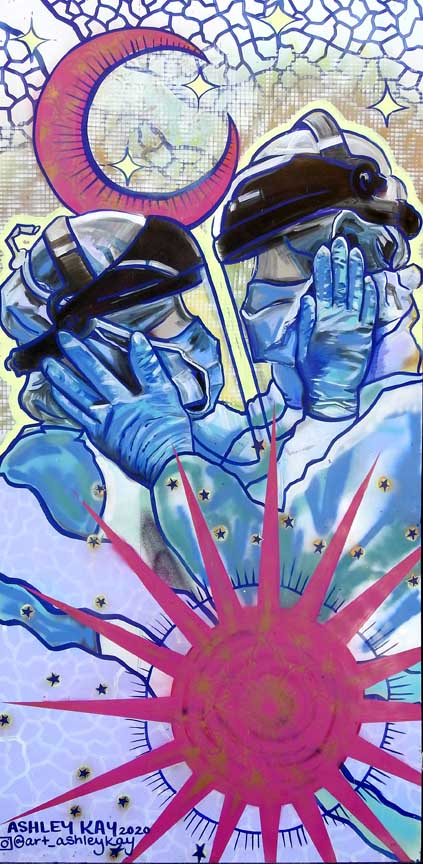 Love during the 2020 Covid Pandemic ... By Ashley Kay 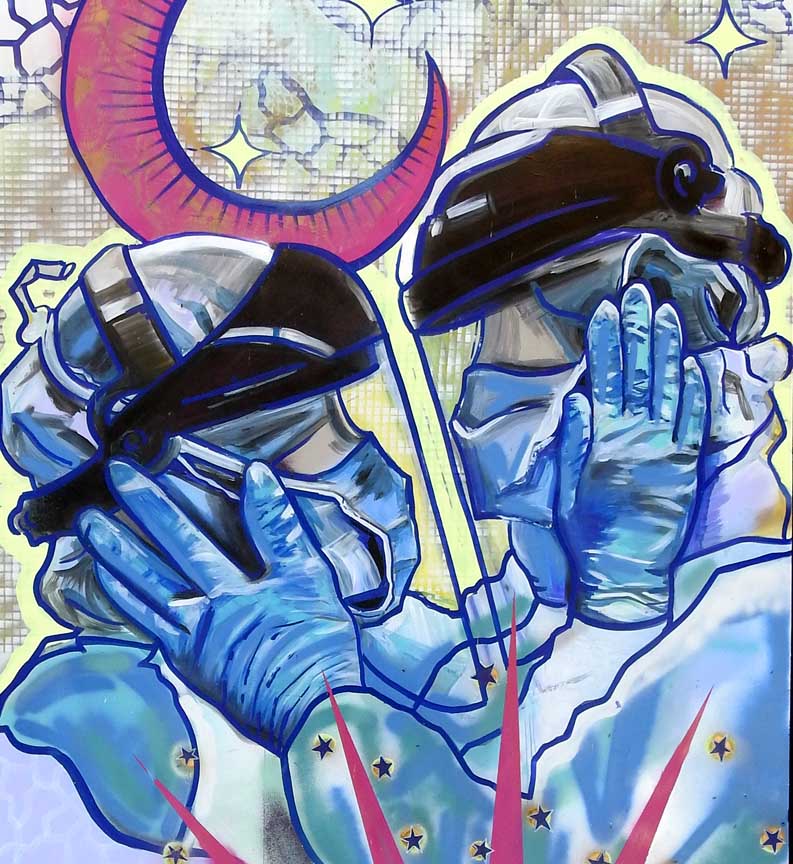 |
|
"Few
people know we had
an active KKK chapter here during Prohibition and that its
office was
in the Calumet Building. For those unfamiliar with Klan history
in
Buffalo, see Shawn Lay's book, 'Hooded Knights on the Niagara'
(NY
University Press, c1995). A Buffalo policeman lost his life in
the
battle with the Klan, and has been forgotten as a martyr against
intolerance." -
Cynthia Van
Ness,
Head librarian, Buffalo & Erie County Historical Society
|
|
Buffalo
Ku Klux Klan Membership List
Excerpts:New York Heritage Digital Collections (offline in April 2013) Openly advocating white supremacy and white nationalism, the Klan was known for racist rhetoric and violence against African-Americans, Jews, Catholics, and immigrants. They also promised opportunities for business contacts, fraternal bonding, mystical ritual, and community improvement, casting themselves as defenders of Anglo-Saxon Protestant notions of morality and decency... The Klan's arrival in Buffalo in 1921 exploited a bitter mayoral campaign that pitted Frances X. Schwab (1874-1946), a brewery owner born to German Catholic immigrants, against Protestant Yale-educated "establishment" attorney George S. Buck In spite of hostility to the Klan from the Buffalo press, the Catholic Diocese, and leading rabbis and African-Americans, the Buffalo chapter's first public ceremony took place in a vacant field on Harlem Road on October 25, 1922 (Lay, p.45). The initiation of 800 new recruits was accompanied by a burning cross and public denials of racial bigotry... Operating out of the Calumet Building, 46-58 W. Chippewa Street (Lay, p.81), in offices rented by Kay-Bee Adsign Company, a KKK "front," the Klan was soon infiltrated by undercover Buffalo police officer Edward Obertean, who supplied intelligence directly to Mayor Schwab... Klan headquarters were ransacked on July 3, 1924, and the membership list stolen, perhaps by or with the assistance of Schwab's undercover agents (Lay, p.120). The list was soon in the hands of police, who promptly put it on public display in police headquarters. Thousands of Buffalonians flocked to view the roster and note the names of friends, neighbors, and associates, many of whom quickly distanced themselves from the organization. (1875-1931). The electorate divided along religious, class, and ethnic lines, and Schwab, who had campaigned in opposition to Prohibition, won a narrow victory, becoming Buffalo's first Roman Catholic mayor... |
 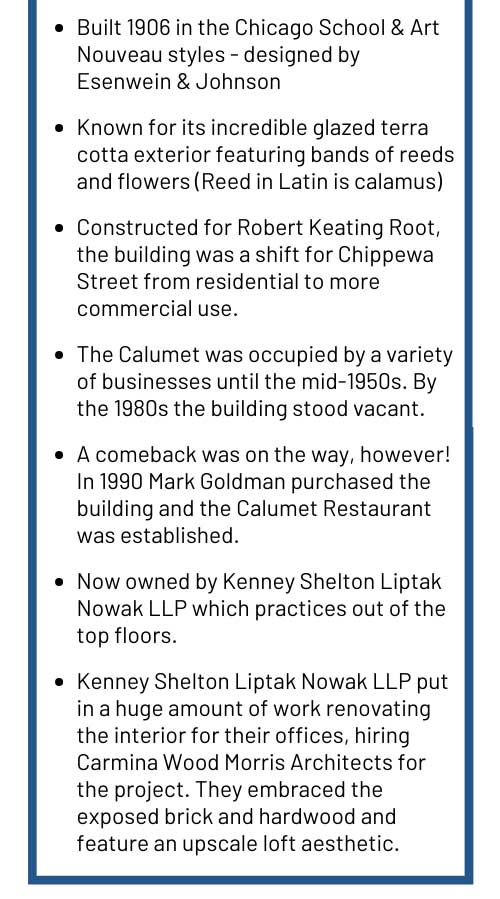 Images courtesy of Explore Buffalo |
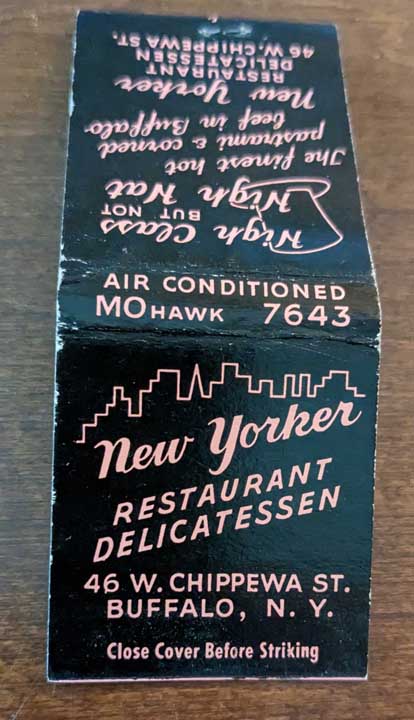  Images courtesy of Rick Engelhardt (May 2023) |
